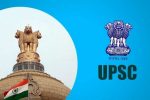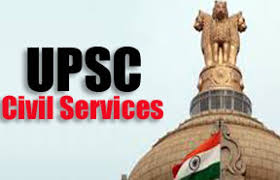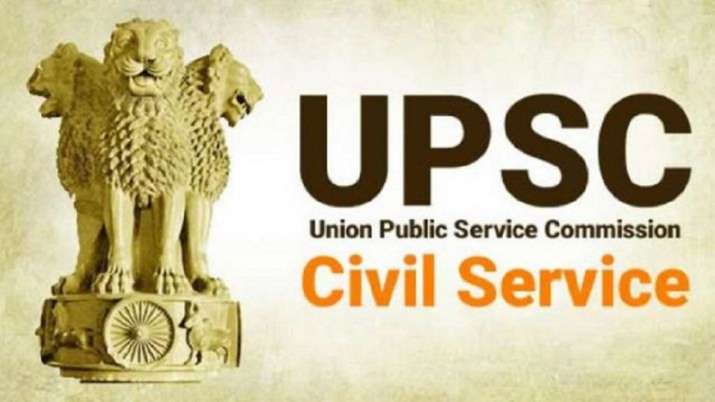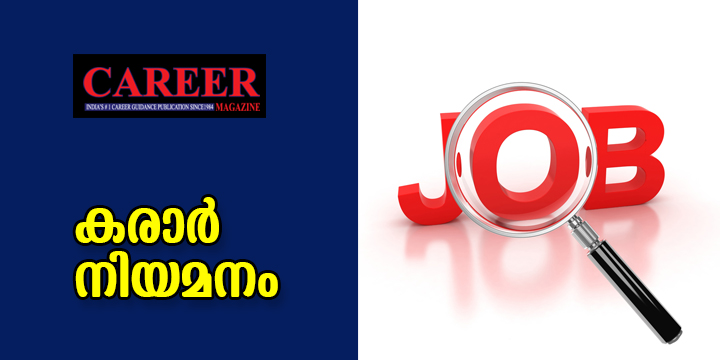CIVIL SERVICES INTERVIEW : HOW TO PREPARE !
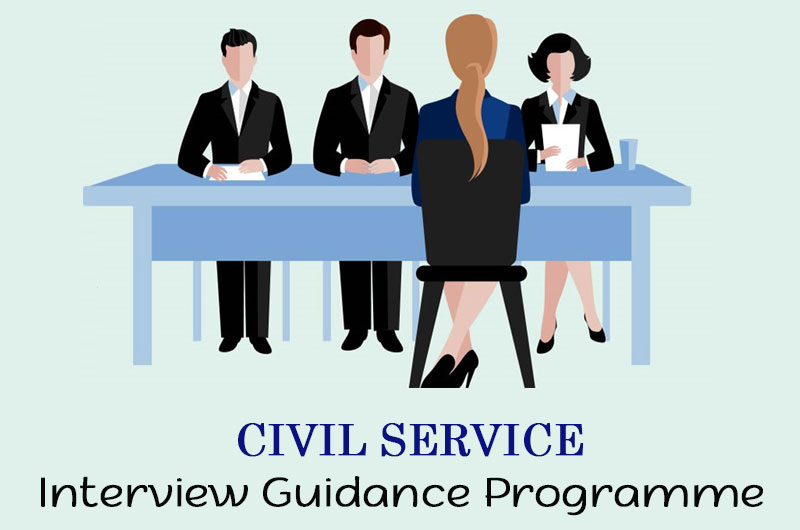
- Surendra Babu
When it comes to preparing for Civil Services (CS) personality test, popularly known as CS interview, the common question in the minds of aspirants is : How to prepare for it? Knowing little about the way it is conducted, the composition of the board, method of assessment of performance, allocation of marks and probable areas on which questions shall be raised, it is inevitable that a candidate who is going to present himself before the board develops anxiety, fear and mental blocks which may affect his performance adversely. Getting to know about the vital aspects of preparation is , thus, an imperative need.
How the interview session is conducted: In its notification, UPSC clearly mentions both the purpose and manner of the interview. It is quite instructive to read UPSC guidelines in its published notification.300421 I.
- UPSC, in its notification, states that ” a candidate will be asked questions of general interest. The object of the interview/ personality test is to assess the personal suitability of the candidate for a career in public service by a board of competent, unbiased observers.
- The technique of the interview/ personality test is not a strict cross examination but of a natural, though directed and purposive conversation which is intended to reveal the mental qualities of the candidate.
III. The interview/ personality test is not intended to be a test either of specialised or general knowledge of the candidate which has already been tested through their written papers. Candidates are expected to have taken an intelligent interest not only in their special subjects of academic study but also in the events that are happening around them both within and outside their own state or country as well as on modern currents of thought and in new discoveries which should rouse the curiosity of well educated youth.
A close reading of the above instructions issued by UPSC removes all doubts and apprehensions about the interview. The major derivations from UPSC instructions are:
- The interview seeks to assess whether a candidate is suitable for a career in public service. His traits of leadership, decision making capacity, social cohesion, balanced judgment; moral and intellectual integrity will greatly determine his suitability for public service.
- The board, consisting of five members, is a competent and unbiased group of experienced experts which will be solely guided by objective criteria of a candidate’s merit without any bias of any kind. Everyone is treated as equal before the board irrespective of his social, economic , academic background.
- The keyword used by UPSC is “purposive conversation” during the interview session. By engaging you in a conversation, the board will encourage you to reveal your mental qualities such as mental alertness, critical powers of assimilation, clear and logical exposition, balance of judgement, variety and depth of interest, ability for social cohesion and leadership, intellectual and moral integrity
- Finally, UPSC notification makes it amply clear that current happenings in the state to which a candidate belongs, national and international happenings, current developments in health, trade, science and technology etc will be taken up during the conversation. Quite naturally, current affairs constitute a good part of the interview.
How the interview begins: When you enter the board, you will find yourself standing before five senior, experienced members sitting opposite you. Of these, one will be chairman of the board, who happens to be one of the members of UPSC. Quite often, the chairman is a retired bureaucrat from IAS, IPS , IFS or some central service. Of the remaining four, two members happen to be from bureaucracy while two are domain experts. These four members come on invitation by UPSC to be a part of the board. Once you are asked to take your chair, the chairman will engage you in a short conversation for five to seven minutes mostly raising questions relating to your bio data, known as DAF or Detailed Application Form. Then, he will direct another member to put his questions before you. He may also raise some questions on certain aspects of information furnished by you in your DAF. Then he will ask questions relating to economics, governance, international issues etc. This trend will continue during the remaining part of the interview .
In other words, different questions on economy, health, governance, etc will be posed by all members. Moreover, certain well known questions regarding your choice for civil services as a career, hypothetical questions like how you will act in a given situation, how will you tackle corona in your district if you are the district collector, are bound to be raised. During this kind of conversation, there will be situations where the member/ members will disagree with you on your position, explanation. You must remember, it is part of the interview process and disagreement is designed to test your balanced responses. How your performance is assessed? After you leave the interview room, the chairman will give his comments on your performance to other members. The other members will also submit their assessment of your performance.
Keeping in mind how they have been allocating marks to previous candidates, they will arrive at a certain allocation of marks to you. Rather than judging your performance on various specific yardsticks, they will judge you on the basis of your overall personality projection. A good performance is one in which you are able to convince the board with your crisp, precise answers and impress them with your personality traits. A bad performance is one where you appear unsure about your stand on an issue, or contradict yourself, or lack basic information expected of you. An average performance is one where in you are found to be a person of medium calibre lacking outstanding qualities.
Probable areas of questions: A proper understanding of the kind of questions being asked to majority of candidates in the past several years makes it easier to anticipate what questions you are likely to be asked in your interview. Of course not all the areas or questions can be predicted as there will always be some unpredictable questions. To be realistic, you should prepare for predictable questions and not the unpredictable ones. In any case, as far as unpredictable questions are concerned, even if you are not able to answer some of them, its not going to impact your interview so long as you are strong enough in the predictable part of the questions. Some of the probable questions will be on the following topics.
- DAF: You are required to furnish in your DAF a variety of details regarding your parental, educational background, your job description if any, your hobbies and extracurricular activities, choice of services and preference for cadre. Thus, your DAF attracts the members most and they form an opinion about you through your DAF, raise questions on the basis of information furnished by you in it. Be very careful to furnish those information with accuracy and honesty. Never commit yourself to anything in DAF which is difficult to defend or justify. Since you have on your provided those information, you are supposed to defend them. Consult some knowledgeable persons to formulate your answers on DAF.
- Your state: Questions on your state relating to its economy, law and order, issues of governance, culture, history etc are bound to crop up. A quick brush up on these issues from authentic sources is highly desirable. For example, if you belong to Bihar, its history in terms of big empires like Mauryan empire, birth of Buddhism, Jainism may be asked. Bihar’s backwardness, caste ridden politics, bad governance will be taken up by the board members during the conversation and your views will be elicited on the same. Recent issues like impact of prohibition, recently passed Bihar Police Act will surely be asked. Taking a cue from this example, you should prepare for your respective states.
- National issues: This will be an important part of the interview conversation. Covid related health issues, governance challenges posed by covid, measures being taken to revive the economy, farm bills and issue of protests, downgrading of Indian democracy by international watchdogs, rise in naxal violence, and a host of other recent issues will be on the plate.
- International issues: A lot has happened on the international horizon in the last several months. China related issues, US elections, JCPAO and Iran, cyber attacks by China and Israel, Abraham accords, vaccine diplomacy, role of WHO during pandemic, Brexit and it’s implications for UK, EU and India, Indian foreign policy and it’s relationship with neighbours, especially recent disengagement on LAC between India and China, ceasefire on LOC between India and Pakistan, trade issues with Pakistan, Indo- Nepal issues, 50 years of Bangladesh independence, devolution of powers in Srilanka etc are going to be some of the areas on which questions will be raised. One should list out several more such issues and formulate different questions/answers on these issues.
- Controversial questions: Candidates always wonder as to what stand to take on controversial issues. For example, how to answer questions on farm laws which are so controversial, or, what stand to take on the reservation politics. On such issues, a rebellious, extreme type of stand should be avoided. Middle path should be chosen by adopting moderate opinions. You may disagree with government stand on an issue but never sound politically opposed or motivated because you are supposed to be neutral and unbiased as a civil servant. The key here is to make a list of controversial issues, frame probable questions and articulate a stand beforehand so that you don’t have to improvise it during interview. While answering questions on the above issues, you must sound authentic, and well informed. You must appear to be in possession of a critical, analytical mind with keen interest on issues of public importance. Even if you don’t have in-depth knowledge of the subject, its fundamentals should be clear to you.
- Your optional paper: The board will get to know about your optional paper from your DAF. They may or may not test you on your optional paper but you must anticipate a few questions and prepare their answers. Usually, the questions on the optional paper are not specialised but of a general nature. They may want to know why you have opted for it, its application in administration, current developments in the subject, if any Finally, just preparing on the expected areas is not the complete preparation for the interview. Its about projection of your true, authentic and real personality. Therefore, try to reveal the real attributes of a good personality during the interview session. Remember, interview session is not an extraordinary event .There will be no extraordinary expectations from you by the board members. It is going to be just a normal dialogue between you and the members in a comfortable atmosphere. So, no need to act before the board as someone which you are not. Present your normal self rather than trying to impress the board by over projection of your personality.
For more information, Subscribe NOW : https://careermagazine.in/subscribe/

